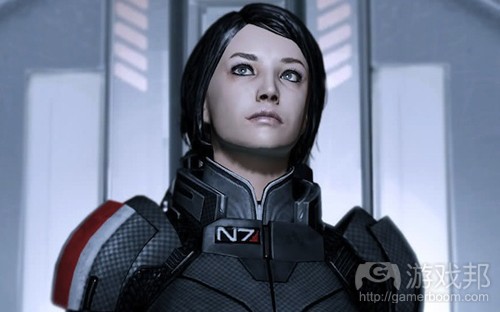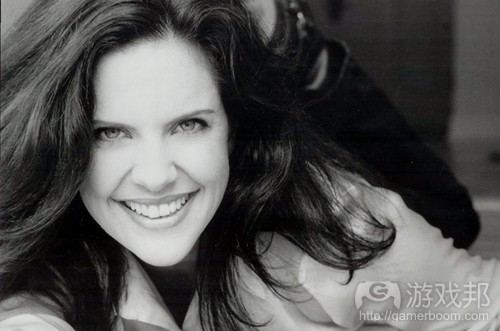人物专访:Frank Cifaldi谈为电子游戏配音体会
作者:Frank Cifaldi
配音演员Jennifer Hale经常接受别人的采访,此次她回答了我“你是否也做真正的配音?”之类之前已经频频遇到的问题。我从未做过配音,但是我很清楚在录音棚中刻画角色所需的训练和集中程度要远远超过真正的配音。
在镜头前,你有道具、场景和其他演员的配合。但是在录音棚汇总,除了耳机、声音控制器和自己的想象力之外,别无他物。
在今年西雅图举行的PAX Prime世界博览会上,她作为BioWare嘉宾出席活动,推广即将面世的《质量效应3》(游戏邦注:与前两部作品中相同,Hale在其中为Commander Shepherd配音),并与我谈论了为游戏配音所面临的挑战。
即便你从未玩过《质量效应》系列游戏,你很可能也听过Hale的声音。她与BioWare的合作可以追溯到1998年的《博德之门》,参与过的游戏包括《异域镇魂曲》、《星球大战:旧共和国武士》和即将面世的MMO游戏《星球大战:旧共和国》。
她还在Double Fine的《Brutal Legend》中与他人合作扮演Ophelia,给《银河战士》三部曲中的主角Samus Aran配音,而且在《潜龙谍影》系列游戏中担任Dr. Naomi Hunter和Emma Emmerich的配音演员。
录制游戏配音与动画片等其他作品有什么不同?
在动画片配音中,所有的配音演员都在场,通常需要耗费4个小时的时间。因为所有的配音演员都在场,所以在对话推进时专注点会从一个演员转移到另一个演员上。
在游戏配音中,99%的情况都只有你一人在场,要么与你交谈的就是mocap!mocap确实很令人惊叹,但感觉与人类仍然不同。游戏录音时,录音棚中只有你一个人,相当于一个人表演4个小时的时间。而且,你还无法看到其他人的表情,只能想象他们会说出什么话来。
你在进行游戏录音根本不可能即兴发挥?我想在其他媒介中你可能采用过这种方法,对吗?
是的,可以这么说。在某些动画片中你可以临时发挥,片方希望你能够这么做,这听起来确实很棒。也有些动画片不鼓励这么做,但临时发挥就是配音演员的工作技能,你应该这么做。
在游戏配音方面,尤其是BioWare游戏的配音,出于技术原因你甚至连停顿都不能改变。就像我在跟你说话时偶尔会有停顿,但仅仅是这样的停顿也不能出现在游戏配音中。出于技术原因,此类停顿会使得游戏系统出现漏洞,因而BioWare就必须重新录制。录音需要完全的精确性。
作为配音演员,有时这种要求会带来些许挑战,因为有时候某些改变完全是出于自发行为。但是担任游戏配音意味着我必须努力改变这种自发性,与工作要求保持一致。
游戏开发者,尤其是配音导演和剧本作者应该知道哪些内容?你要完成自己的工作需要从他们那里学到哪些知识?
我要关心的就是故事。故事中含有的是角色、现实性、对话和人们交谈的方式。我们需要在游戏中进行一定数量的阐述,当你尽力使得阐述性对话显得自然时,就会面临一定的挑战。而我的工作就是用对话来让玩家产生动机。有时这显得有点艰难,但是我知道这一点在游戏中很重要,因为配音就是在为玩家提供潜在的指导。
对于个人而言,我最喜欢的配音导演是那些能够掌握良好时机的人。有时导演会与你交流播放这段配音时游戏中发生的事情以及他们的需求,而演员的灵感正是在这种交流中出现。如果导演确实很能够把握时机的话,那么就会注意到演员已经产生了灵感。你需要做的就是按下按键,然后让他们尽情发挥。
有些导演并不会意识到演员已经抓住灵感,只是不断地与演员交谈。而我的工作就是重新产生这类灵感。
优秀的导演应当能够让你在抓住灵感后尽情发挥,让你完成自己的工作。
就是这样子的。应该相信他们的想法已经被我们所领悟。如果我的创造性与他们的已经同步的话,就该让我们继续进行下去。有些演员可能需要更多的解释,有些演员根本不需要。有些演员靠的是自己的直觉,有些演员靠的是睿智的头脑。所以,我们的工作方式都各不相同。
游戏制作者应当避免犯哪些错误?或者换个问法,差劲的导演会有哪些做法?
他们不断地说话!他们磨灭了我们的灵感!他们不相信你,他们想要控制所有的事情!这样做并不好。而且,他们也不相信剧本。应该相信剧本!所有的内容都在剧本上!
在我看来,似乎多数配音都偏爱使用那些著名的电影演员而不是真正的配音演员。我想这两者间应当有所不同吧?
是的。配音就像是在绿光屏上的电影表演,但即便是绿光屏我们周围依然有其他东西。我们有其他的演员相配合,有时我们会有某些其他物品,我们能够获得切身的体验。
但是在配音时我们什么都没有!你就站在4X4大小空间的地板上。你必须保持自己的注意力集中。你必须自己创造环境、你的状况、其他演员、此前发生的事情、接下来要发生的事情,所有的这些都必须在头脑中构思出来。因而,我们对注意力的集中性要求很高。
有些著名演员能够领悟到这一点,但有些并不能。如果你站在摄像机镜头前,你可以假装。假设今天你状态不好,无法将自己融入到剧情中,你可以假装出来以完成拍摄。但是这一点在配音上行不通,因为声音不会撒谎,会将你的状态表露无遗。
简单地说,要帮助你完成配音工作,配音导演需要准备哪些东西?
动画脚本可能有30、60或110页,我可以见到故事的开始、发展和结束,导演同样也可以看到整个故事过程。
而游戏配音导演面对的可能是厚达6英寸到60英寸的故事文稿。工作量巨大,我只能粗略了解故事的背景以及我需要知道的所有细节。
你无法阅读整个故事脚本吗?
我不能这么做。出于保密原因,我甚至无法知道项目的名字,直到游戏发布为止。所以,我只能阅读我需要知道的数页内容。有时他们会给我更多的信息,这确实很棒,但通常只有张Excel电子表,上面有我需要说的词和表达的方法。
游戏脚本与电影脚本并不相同,在后者中你可以看到整体环境以及你所居住的整个世界。我的意思是,这些人需要做的工作非常多。我将此比喻为钢笔笔头。我只是控制墨水流出的那一小部分。
在我背后有个还有个控制书写的庞大机器,那就是所有的剧本作者、制作人和开发者。我只是一小部分而已。
所以说,听起来好像小抄挺有用的。
是的。导演应该给演员一些小抄,描述下环境的情况。这样能让他们的表演更加真实,而且知道为何有时的表演比较好,有时的表演比较差。因为导演的做法可能让优秀演员表现得很差,当然也可能让差劲的演员表现得很好。(本文为游戏邦/gamerboom.com编译,如需转载请联系:游戏邦)
Interview: Voice Actress Jennifer Hale On When To Shut Up And Let Her Work
Frank Cifaldi
The question seasoned voice actress Jennifer Hale gets asked most often, she tells me (while rolling her eyes theatrically) is along the lines of “So, do you do real acting too?”
The question is frankly insulting, but she’s used to it, as are most others in her profession. I’ve not done any voice acting myself, but it’s clear to me that the level of discipline and focus required to come across as a convincing character all by yourself in a sound booth far exceeds that of “real” acting.
On camera, you’ve got props, a setting, and the other actors to play off of. In a sound booth, you’ve got nothing but an oppressive set of headphones, a voice director, and your imagination.
In the interest of furthering the quality of video game voice acting, I spoke with Hale about the challenges of voicing a game during some downtime at this year’s PAX Prime expo in Seattle.
She was at the show as a guest of BioWare to promote the upcoming Mass Effect 3 (for which she plays the role of the female version of Commander Shepherd, as she has for the entire series).
Even if you’ve never played a Mass Effect game, you’ve probably heard Hale’s voice. Her working relationship with BioWare stretches all the way back to 1998’s Baldur’s Gate, and has encompassed games including Planescape: Torment, Star Wars: Knights of the Old Republic, and its upcoming MMO Star Wars: The Old Republic.
Other games that she’s had a part in include the co-starring role of Ophelia in Double Fine’s Brutal Legend, the lead role of Samus Aran in the Metroid Prime trilogy, and the roles of both Dr. Naomi Hunter and Emma Emmerich in the Metal Gear Solid series.
What’s the difference between recording a game versus something like an animated series?
In an animated series, typically the whole cast is there. It’s usually about a four hour session: it can be more, but typically it’s four hours. The whole cast is there, and the focus shifts from one cast member to another as you go through the dialog.
In a game session, 99 percent of the time it’s just you. Unless you’re talking about mocap! Mocap is awesome, and it’s a whole different animal. But in voice recording it’s just you by yourself in a booth. It’s the equivalent of doing a one person show for four hours with a couple of pee breaks. And you also don’t get the benefit of another person’s expression and energy coming at you, you sort of imagine what they say. But it still comes out of your head.
It’s kind of impossible to improvise when you’re recording a game, right? Which I imagine is something you depend on for other media?
[sighs] Yeah…there’s sort of a whole spectrum. I mean, some animated series you get to improvise, and they want you to, and it’s awesome. There are animated series where they don’t; where the writers have it all wound in the way they think is absolutely right. And you do that, that’s your job.
In games, especially BioWare games specifically…because the technical demands are so extensive and so specific, you can’t vary a breath. Like if I’m talking to you and I have…a pause. Like that one. Just a pause. You can’t do that in games right now with BioWare’s technology because that will create a bug in their system, and they’ll need to go back and re-record that. It needs to be exact.
As an actor, that’s a little challenging and a little disappointing sometimes because there’s such incredible life that comes out of that level of spontaneity. But it just means that I’ve got to work harder to create that spontaneity in other ways, in other places, and keep it alive and keep it honest every other way I can.
What should game developers, maybe specifically voice directors and writers, know? What do you need from them so that you can do your job?
For me it’s all about story. Story first: deep characters, reality, honesty of dialog and how people really talk. We have to be used for a certain amount of exposition, and that has its challenges, when you’re trying to make expository dialog sound natural. And it’s my job to find the motivation for that. That’s a little tough sometimes, but I know it’s important in games, because you’re also sort of giving people instruction on the sly.
For me my favorite directors are those who have good timing. There’s a moment where a director communicates with you what’s going on, what they need…there’s a moment that a spark happens inside the actor. And you can see it if you’re really engaging the actor, really looking, you can see when that spark fires. You need to get off the button and let it go. Let them talk, let ‘em act.
Some directors don’t see it, and they just keep talking and that spark dies. And it’s my job to regenerate that. But when it happens in that organic moment, it’s fantastic.
Letting you go when you get it, letting you do your job.
Exactly. And trusting that the seed they’re planting is firing correctly, and that I get it. My creativity is synched up with theirs, and just…let go. And some actors need more explanation and some don’t. Some are more intuitive, some are intellectual. So we all work in different ways.
What should game creators avoid? Or I guess another way of asking this, what does a bad director do?
[laughs] They keep talking! And they kill the spark! And they don’t trust you, and they try to control every moment. That’s not good. And they also don’t trust the writing. Trust the writing! It’s all in the writing! You’ve got like a Tim Schafer or a Matt Walters, when you’ve got those guys going, just trust it and let it rip!
It seems to me that most voice casting is leaning toward using celebrity film actors for voices rather than actual voice actors. It’s a different discipline, I’d imagine?
Yeah. Voice acting is like film acting on a green screen, but even on a green screen we have each other. We have the other actors to work off of. And we’ve got sometimes some physical manipulation of us that’s going on, if we’re flying on wires or something, we get to experience that.
But with voiceover you’ve got nothing! Your feet are on the ground, you cannot move outside of a little 4×4” space. You really have to keep a strong focus. You have to create your environment, your circumstances, the other actor, what just happened right before, what’s about to happen, what you really really want all lined up in your head. And the demands for focus are enormous.
Some celebrities can pull that off. Some can’t. The thing about voice acting, or acting when you only hear the actor…you can fake a little bit visually, if you’re on camera. Say you’re having a bad day and you’re just not connecting with the material, you can fake it out. You can do that a little bit with voiceover, but truly the voice does not lie. It’s all right there.
In brief, what should a voice director come prepared with to help you do your job?
In an animated script you’ve got either 30, 60, or maybe 110 pages if you’re doing a feature, and I get to see the beginning, middle and end, and so does the director.
The director of a game maybe has anywhere from a six inch to, I don’t know, a sixty inch stack of paper to go through to get this whole story right. The workload is enormous. I am counting on them for context, and for every detail I need to know about.
Because you can’t read the entire script?
I can’t! I can’t for confidentiality reasons even name the projects I’m working on unless they’ve been released. I am not allowed. So I can’t read more than my pages. Sometimes they’ll send me more, which is great, but often it’s just an Excel spreadsheet with the lines and how the lines should be delivered.
It’s not like a film script where you’re seeing your whole environment and the entire world that you’re inhabiting. That would be awesome. But I mean, these guys have so much to do. I describe it as like the head of a pen. I’m the little part that puts out the ink, that’s the stuff you see.
There’s a giant machine behind me making that ink happen, which is all the writers and producers and creators. I’m just the tip of it.
So it sounds like a good cheat sheet would help.
Yeah. Directors should have a great cheat sheet for the actor, just the facts of the environment. They should know acting a little bit, what it takes to make an environment real, and know why sometimes acting is good and sometimes it’s bad. Not the actor, but acting in general. Because you can have a good actor be bad and vice versa.
…and let you do your job.
Yeah! Let’s play! (Source: Gamasutra)
上一篇:HandCircus创始人谈iPhone开发商转战PS3感想
下一篇:格莱美奖游戏作曲家分享创作体验









































 闽公网安备35020302001549号
闽公网安备35020302001549号